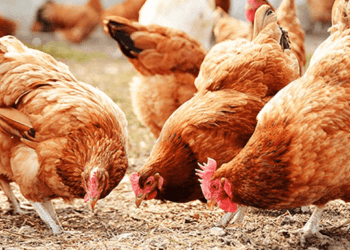The coordinator of Third World Network-Africa, Dr. Yao Graham, has called for a paradigm shift in Ghana’s economic policy.
In a recent public lecture at the University of Ghana, Dr. Graham emphasized the need to build linkages between different economic sectors to promote sustained growth in the country.
The coordinator pointed out that weak linkages in the agriculture sector, due to a focus on cocoa, and the extractive sector’s emphasis on gold, are major impediments to Ghana’s economic progress.
Dr. Graham urged the government to prioritize industrialization and invest in initiatives such as: “One District, One Factory,” “One Village, One Dam,” and “Planting for Food and Jobs” (PFJ) to move away from the dominant paradigm of primary commodity export dependency.
The PFJ initiative aims to increase food production and create jobs in the agricultural sector. While the initiative has been praised for its potential to reduce poverty, it has also faced criticism for its lack of sustainability.
Dr. Graham’s research on the PFJ and One District, One Factory initiatives revealed lapses, disconnections, and issues of sustainability.
He emphasized the need for rigorous evaluation and monitoring to ensure accountability and transparency.
Dr. Priscilla Twumasi Baffour, a senior lecturer at the University of Ghana, added that the country needs to add value to its natural resources to enhance revenue generation.

This, she stressed, calls for a paradigm shift because the problem is fundamental and needs a multifaceted approach to address the issues.
Dr. Philip Abradu-Otoo, Director of research at the Bank of Ghana, emphasized the need to strengthen macroeconomic indicators to optimize growth.
While Ghana has made significant progress in reducing poverty and improving economic growth over the past few decades, there is still a long way to go.
According to the World Bank, Ghana’s GDP per capita is estimated at $2,202.8, making it a lower-middle-income country.
Despite the country’s middle-income status, poverty and inequality remain pervasive, with over 21% of the population living below the poverty line.

Graham Suggests Measures To Be Adopted By Government
According to Dr. Graham, to ensure the success of such initiatives, there must be rigorous evaluation and monitoring. The government must be accountable and transparent in its use of public funds, and there must be mechanisms in place to ensure that the benefits of economic growth are spread equitably across the country.
While the focus on cocoa and gold has been beneficial in the past, Dr. Graham has noted that it is not sufficient for sustained economic growth.
Dr. Yao Graham’s call for a paradigm shift in Ghana’s economic policy is crucial for the country’s sustained economic growth.
The government must prioritize industrialization and invest in initiatives that will create linkages between different economic sectors. This will not only enhance revenue generation but also promote job creation and reduce poverty.
Read also: Best farmer Calls on Government to Address Unstable Cashew Prices





















